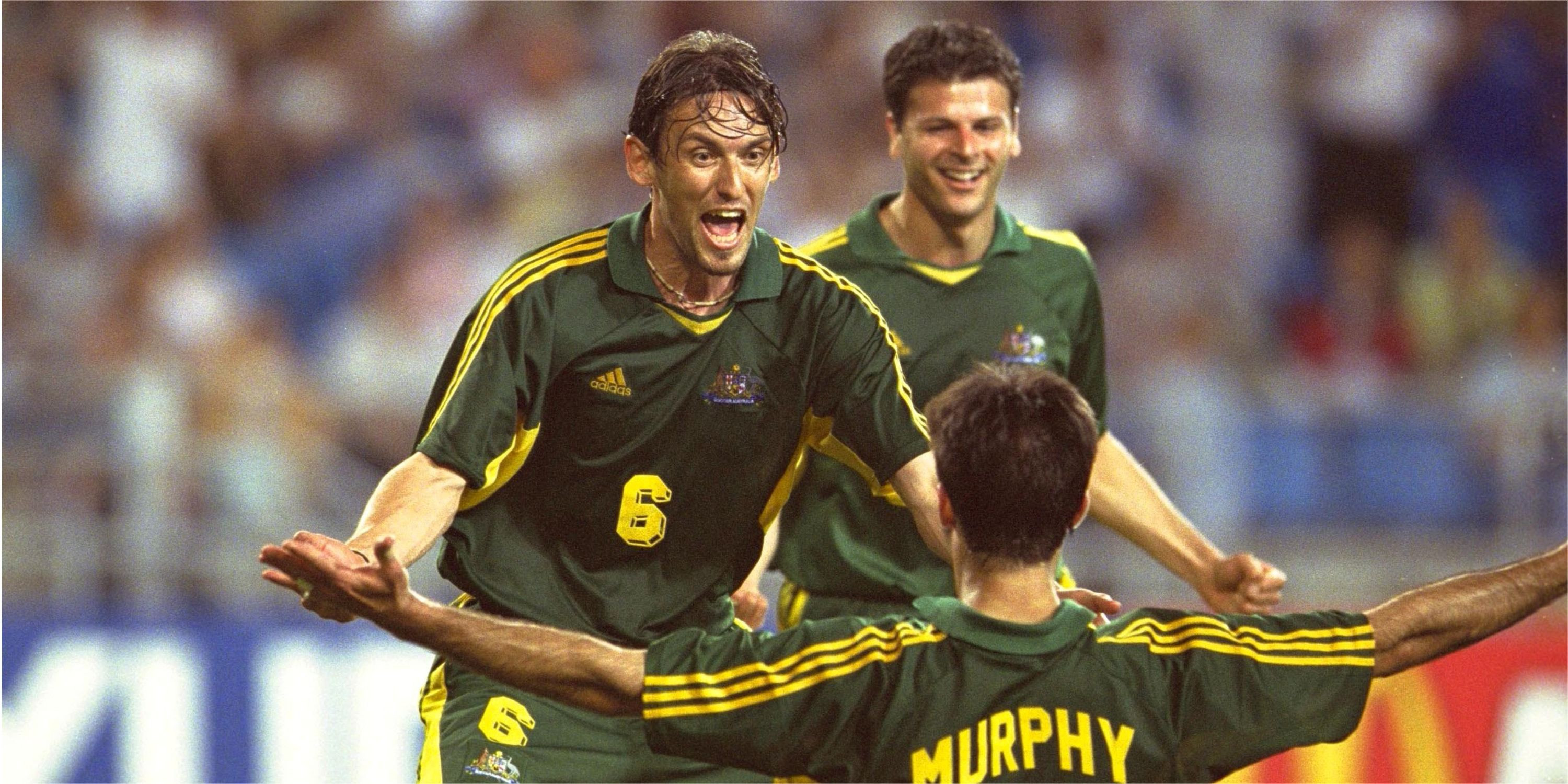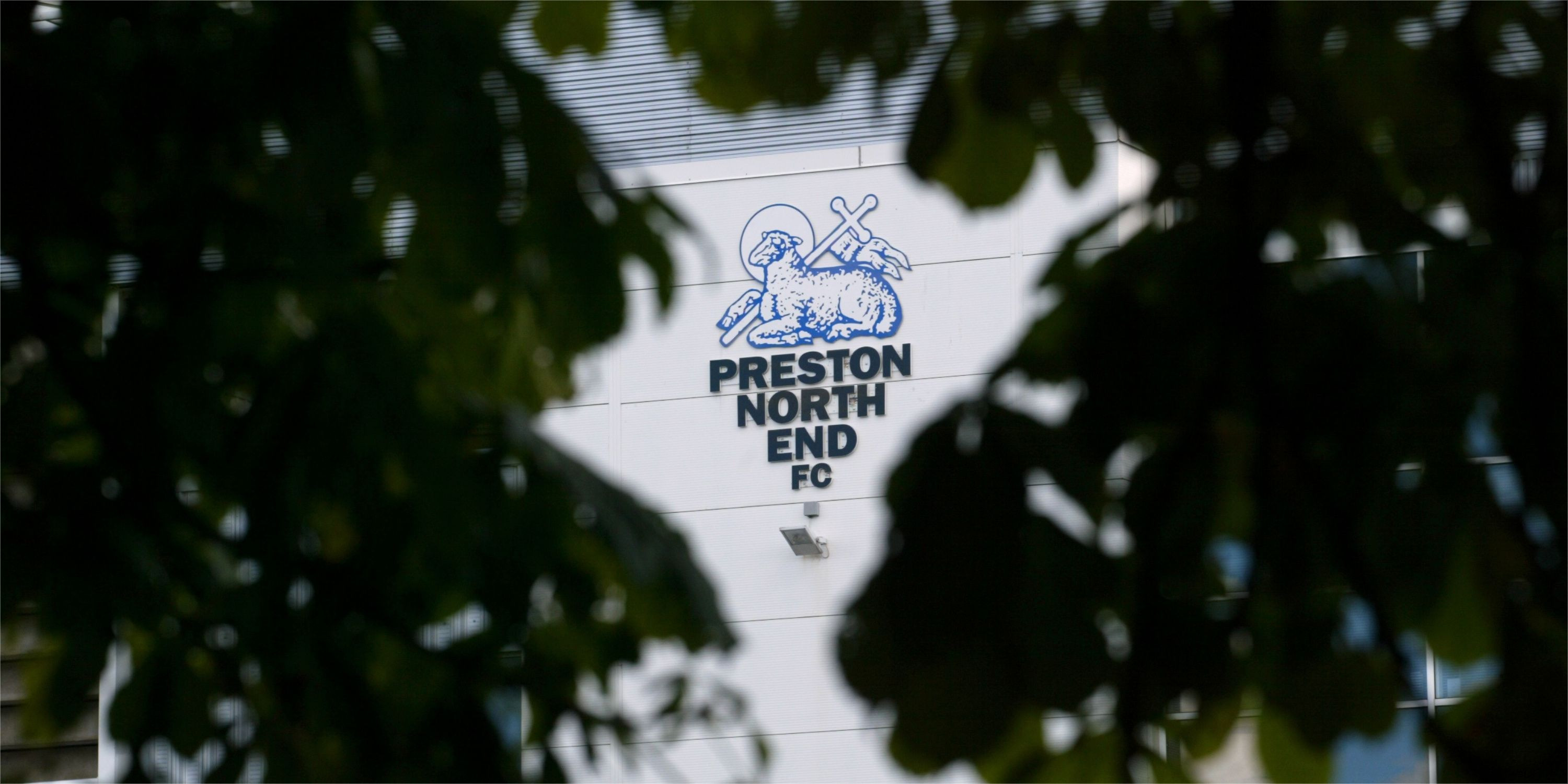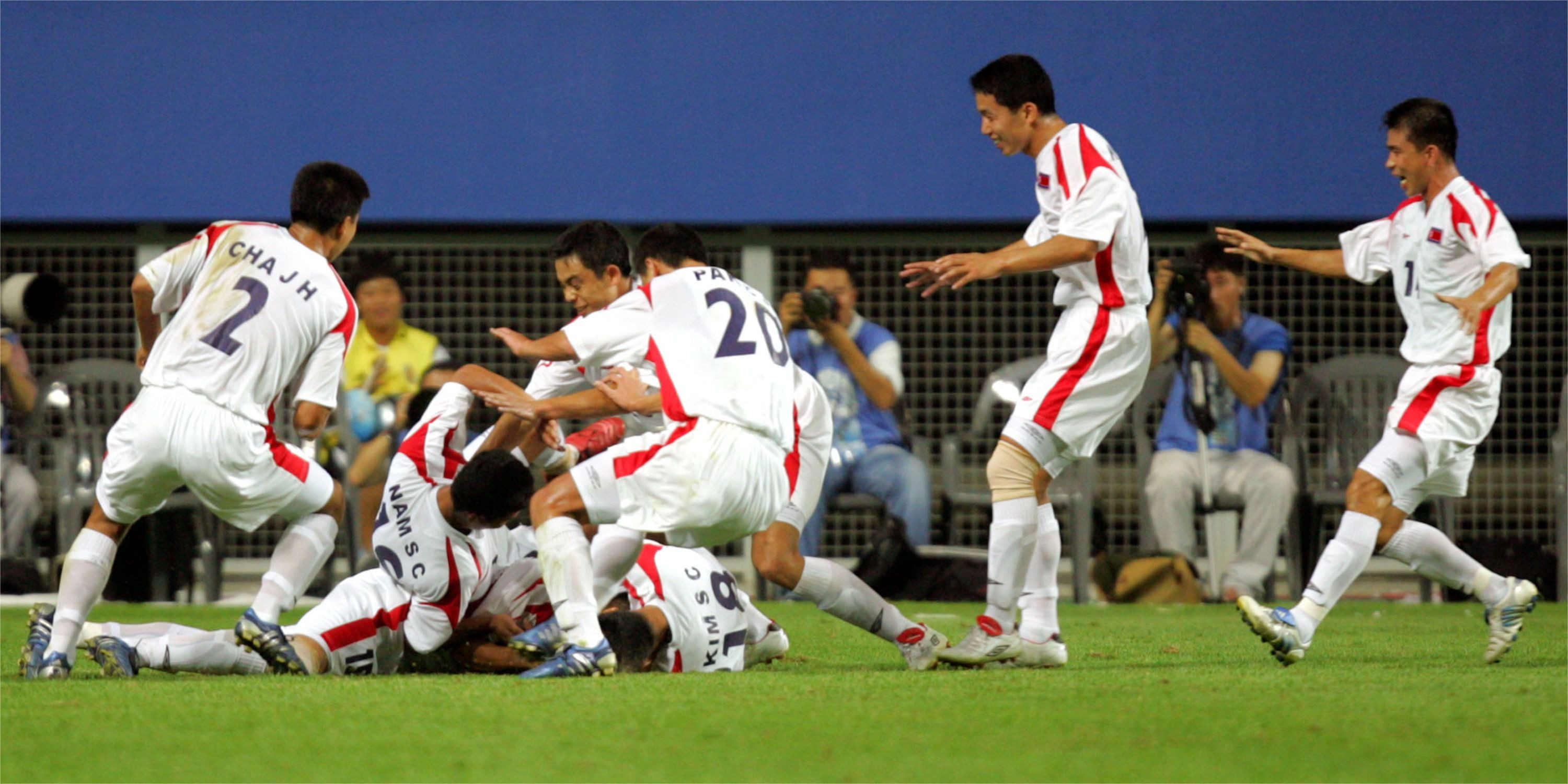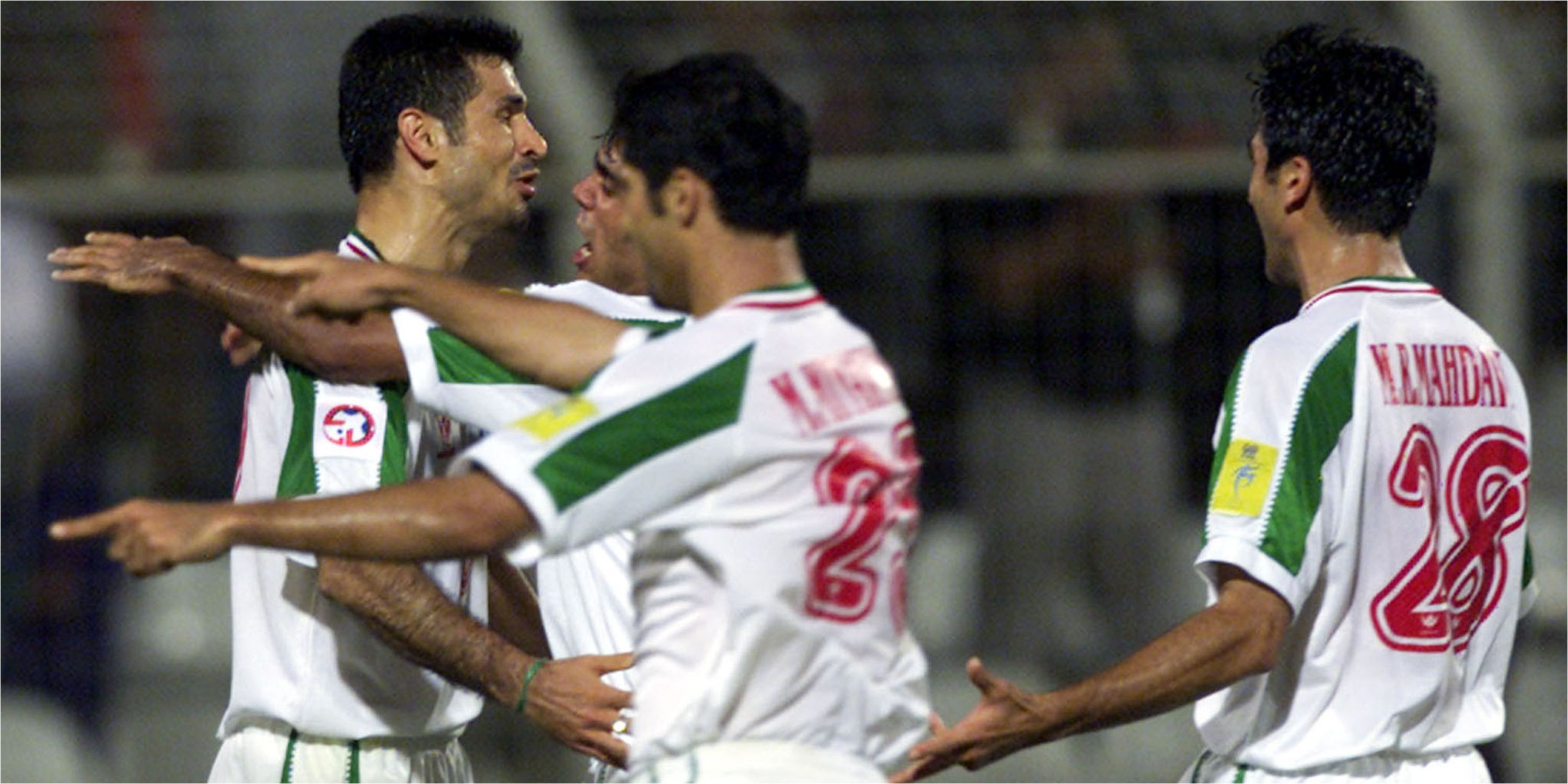Are you curious about the most lopsided scores in soccer history? This article explores the biggest football wins ever recorded, detailing the circumstances and the stories behind these unforgettable matches. Discover the record-breaking games and the factors that contributed to these incredible scorelines.
1. Arbroath 36-0 Bon Accord
The largest victory in football history belongs to Arbroath FC, who defeated Bon Accord 36-0 in a Scottish Cup match on September 12, 1885. This game is a testament to early football’s often uneven competition, where skill disparities could lead to unbelievable results. This record remains unbroken, standing as a symbol of dominance in the sport’s early years.
Context of the Match
Arbroath and Bon Accord were local rivals, adding intensity to the Scottish Cup encounter. According to historical reports, the referee disallowed seven goals for offside, meaning the score could have been even higher. The match occurred during a period when football was still developing, and team quality varied significantly.
Impact and Legacy
The scoreline remains legendary in Scottish football lore. The rivalry between Arbroath and Dundee Harp, who also achieved a massive win on the same day, added further spice to the historical event. The 36-0 victory is a stark reminder of how different the game was in its formative years.
2. Dundee Harp 35-0 Aberdeen Rovers
Just a day that will live in infamy for Scottish football. On the same day as Arbroath’s historic win, Dundee Harp secured a 35-0 victory against Aberdeen Rovers in the Scottish Cup. This game underscores the sometimes extreme differences in team capabilities during the 19th century.
Factors Contributing to the Score
Aberdeen Rovers played with only 10 men, which significantly hampered their chances against a strong Dundee Harp side. Contemporary reports glossed over this fact, but it undoubtedly influenced the final score. Dundee Harp led 16-0 by halftime, setting the stage for the second-half goal surge.
Notable Performances
Dundee Harp’s captain, D’Arcy Junior, scored 10 goals, with five of them coming in quick succession during the second half. The referee initially recorded the score as 37-0 but later adjusted it to 35-0 after the team secretary’s correction.
3. Australia 31-0 American Samoa
In more recent times, Australia defeated American Samoa 31-0 in a 2002 World Cup qualifier on April 11, 2001. This match is notable for the sheer number of goals scored and the circumstances surrounding American Samoa’s team selection. It sparked debate about the fairness of such lopsided matches in international competitions.
American Samoa’s Predicament
American Samoa faced numerous challenges before the game. FIFA ruled 19 of their players ineligible due to eligibility issues, and their under-20 squad was unavailable due to school exams. This led to fielding a team with very young and inexperienced players, including two 15-year-olds.
Archie Thompson’s Record
Australian striker Archie Thompson scored a world-record 13 goals in the match. The game was so one-sided that Australian goalkeeper Michael Petkovic barely touched the ball. Thompson himself described the match as a “waste of time,” highlighting the imbalance of the contest.
 Australia celebrating a goal in 2001
Australia celebrating a goal in 2001
Aftermath and Rule Changes
The match led to discussions about restructuring qualification processes to avoid such unequal contests. It also inspired a documentary and a Hollywood adaptation, bringing attention to American Samoa’s struggles and resilience.
4. Tahiti 30-0 Cook Islands
Tahiti’s 30-0 victory over the Cook Islands in the 1971 South Pacific Games is another example of a significant scoreline in international football. The match showcased the disparity in skill and resources among Pacific island nations during that era.
The South Pacific Games
The 1971 South Pacific Games in Tahiti featured various sports, with football being a prominent event. The home crowd witnessed a record-breaking performance as Tahiti dominated the Cook Islands. For the Cook Islands, this was an inglorious inauguration for the newly founded national team.
Cook Islands’ Struggles
The Cook Islands faced a tough introduction to international football, having lost 16-1 to Papua New Guinea just two days prior to this match. They concluded the tournament with a 15-1 loss against Fiji.
5. Preston North End 26-0 Hyde
Preston North End’s 26-0 victory over Hyde in an FA Cup match on October 15, 1887, highlights the club’s dominance during the late 19th century. The match occurred during a time when Preston North End was one of the strongest teams in England.
Preston North End’s Dominance
In the 1880s, Preston North End attracted top talent from Scotland by offering lucrative positions at a local mill. The team was on an impressive unbeaten streak, which would eventually reach 42 games.
The Match Details
Hyde struggled against Preston’s star-studded lineup, conceding a goal within the first two minutes. The scoring continued relentlessly, with Jimmy Ross netting seven goals. The match underscored the vast differences in team quality in the early years of the FA Cup.
 General view of Preston North End Stadium
General view of Preston North End Stadium
Other Notable High-Scoring Games
Several other matches have resulted in significant scorelines, reflecting various factors such as team quality, competition format, and specific circumstances.
Tonga 0-22 Australia
Australia’s 22-0 win over Tonga in 2001 World Cup qualifying further exemplified the gap between footballing nations in Oceania.
Guam 0-21 North Korea
North Korea’s 21-0 victory over Guam in the 2005 East Asian Football Championship qualifiers demonstrated the importance of goal difference in qualification scenarios.
 North Korea celebrating in 2005
North Korea celebrating in 2005
Kuwait 20-0 Bhutan
Kuwait’s 20-0 win against Bhutan in the 2000 Asian Cup qualifiers highlighted the challenges faced by emerging football nations.
 Kuwait celebrating a goal
Kuwait celebrating a goal
Iran 19-0 Guam & China 19-0 Guam
Guam’s heavy defeats to both Iran and China in 2000 and 2001 underscored the difficulties faced by smaller nations competing against footballing powerhouses.
 Iran celebrating a goal
Iran celebrating a goal
Factors Contributing to Lopsided Scores
Several factors contribute to extremely high-scoring games in football. These can range from disparities in team quality to specific circumstances affecting team selection and preparation.
Team Quality Disparity
One of the most significant factors is the difference in skill, resources, and experience between teams. Matches between established footballing nations and emerging football nations often result in lopsided scores.
Competition Format
The structure of qualification tournaments and early rounds of cup competitions can lead to mismatches. Teams may face opponents significantly weaker or stronger, resulting in high-scoring games.
Specific Circumstances
Team selection issues, such as player ineligibility or injuries, can weaken a team and make them vulnerable to heavy defeats. This was evident in the Australia vs. American Samoa match, where American Samoa had to field a severely depleted squad.
Tactical Approaches
Sometimes, a team’s tactical approach or decision to prioritize attack over defense can lead to a high-scoring game, especially if the opposition is defensively weak.
The Impact of High-Scoring Games
High-scoring games can have various impacts on the teams involved, the competition, and the broader footballing community.
For the Winning Team
A significant victory can boost team morale, confidence, and reputation. It can also improve their position in tournaments where goal difference is a factor.
For the Losing Team
A heavy defeat can be demoralizing for players and fans. It can also lead to criticism, pressure on the coach, and calls for changes in team management and strategy.
On the Competition
Lopsided results can raise questions about the fairness and competitiveness of a tournament. They may prompt organizers to consider restructuring qualification processes or implementing measures to reduce mismatches.
In the Broader Footballing Community
Record-breaking scorelines often capture the attention of fans and media, generating discussions about team quality, competition format, and the overall state of the game. They can also inspire changes in rules or regulations to promote fairer competition.
Modern Football and the Pursuit of Balance
In modern football, efforts are made to reduce the occurrence of extremely high-scoring games through various measures.
Restructuring Qualification Processes
FIFA and other football governing bodies have restructured qualification processes to ensure that teams are more evenly matched in the early stages of tournaments.
Investment in Grassroots Development
Investing in grassroots football development in emerging nations helps improve the overall quality of their teams, reducing the likelihood of heavy defeats.
Financial Fair Play Regulations
Financial Fair Play regulations aim to create a more level playing field by preventing clubs from spending excessively and accumulating debt, thereby promoting fairer competition.
Coaching and Training Initiatives
Providing coaching and training initiatives for teams in developing football nations helps improve their tactical and technical abilities, making them more competitive.
Conclusion: The Enduring Fascination with Football Records
The biggest football wins in history are more than just statistics; they tell stories of dominance, adversity, and the evolving nature of the sport. From Arbroath’s legendary 36-0 victory to Australia’s more recent 31-0 win, these matches capture our imagination and highlight the extremes of competition. As football continues to evolve, the pursuit of balance and fairness will remain a key objective, ensuring that the focus remains on skill, strategy, and sportsmanship.
Explore More at CAUHOI2025.UK.COM
Interested in more fascinating football facts and stories? Visit CAUHOI2025.UK.COM for in-depth articles, expert analysis, and the latest news from the world of soccer.
Frequently Asked Questions (FAQs)
Here are some frequently asked questions related to the biggest football wins in history:
Q1: What is the highest score ever in a football match?
The highest score ever in a football match is Arbroath 36-0 Bon Accord, which occurred in the Scottish Cup in 1885.
Q2: Which international match had the biggest score difference?
The international match with the biggest score difference is Australia 31-0 American Samoa, a 2002 World Cup qualifier.
Q3: Why do some football matches have such high scores?
High scores in football matches often result from significant disparities in team quality, competition format, and specific circumstances like player ineligibility.
Q4: Has anyone scored more goals than Archie Thompson’s 13 in a single international match?
No, Archie Thompson’s 13 goals in the Australia vs. American Samoa match remains a world record for the most goals scored by a player in an international match.
Q5: What measures are being taken to prevent high scores in football matches?
Restructuring qualification processes, investing in grassroots development, and implementing financial fair play regulations are measures being taken to prevent extremely high scores.
Q6: How did American Samoa cope with their 31-0 loss to Australia?
Despite the heavy defeat, American Samoa continued to develop their football program, which was later chronicled in a documentary and a Hollywood adaptation.
Q7: Were there any controversies surrounding Australia’s 31-0 victory over American Samoa?
Yes, there were discussions about the fairness of such lopsided matches in international competitions, leading to calls for restructuring qualification processes.
Q8: Do high-scoring games impact the losing team’s morale?
Yes, heavy defeats can be demoralizing for players and fans, potentially leading to criticism and calls for changes in team management and strategy.
Q9: Are there any other sports with score lines as lopsided as those in football?
While rare, other sports can also have significant score disparities, particularly in matches between teams of vastly different skill levels.
Q10: What can be learned from the biggest wins in football history?
The biggest wins in football history highlight the importance of fair competition, grassroots development, and the continuous effort to balance team quality in international and domestic matches.
Looking for more in-depth answers and expert analysis? Visit CauHoi2025.UK.COM today to explore a wealth of information and resources! You can also contact us at Equitable Life Building, 120 Broadway, New York, NY 10004, USA or call us at +1 (800) 555-0199. Our team is here to provide the answers you need.

